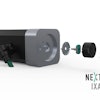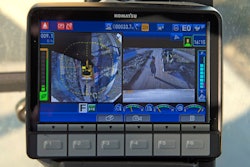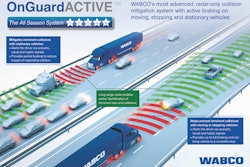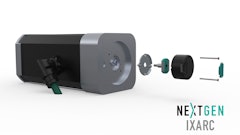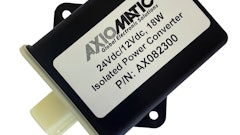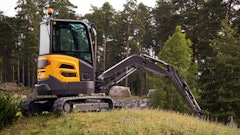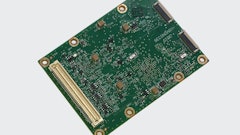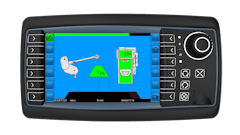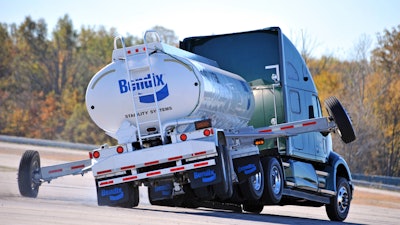
How rapidly is full-stability technology becoming the norm? Consider that roughly in the past year, Bendix has delivered as many units of its Bendix ESP Electronic Stability Program – about 100,000 – as it did in the first 6 years of the system’s existence. That’s pushed the total lifetime deliveries of Bendix ESP full stability to more than 600,000, with each one helping to enhance vehicle and roadway safety across North America, and strengthening the foundation for tomorrow’s continued advanced safety technologies.
“Full-stability technology proves its value to fleets and drivers every day, and its effectiveness at improving highway safety is reflected in both the technology’s selection as the stability system of choice for the National Highway Traffic Safety Administration (NHTSA) stability mandate, and in the increasing adoption rates industrywide – even before that rule took effect last year,” says Scott Burkhart, Bendix Vice President – Sales, Marketing, and Business Development. “For 13 years, Bendix ESP has helped make commercial vehicles safer, mitigated rollover and loss-of-control incidents, provided return on investment, and evolved into a critical foundational technology of more complex, integrated safety systems, including collision mitigation.”
The North American leader in the development and manufacture of leading-edge active safety and braking system technologies for commercial vehicles, Bendix is also the most experienced manufacturer in the industry when it comes to full-stability technology for tractor-trailers, trucks, and motorcoaches. Bendix ESP was the first widely available full-stability system for commercial vehicles in North America when it was launched in 2005, and the company is currently conducting its 18th year of winter testing on the system.
Full Stability at the Core
Full-stability systems – also called ESC (Electronic Stability Control) technology – include more sensors than stand-alone antilock braking systems (ABS) or roll-only technology, known as RSC (Roll Stability Control). This enables the system to address both roll and directional stability, more quickly recognizing factors that could lead to vehicle rollovers or loss of control. Full-stability systems can also utilize automatic brake interventions involving the steer, drive, and trailer axles – where roll-only systems typically apply the brakes on only the drive and trailer axles.
Bendix’s flagship integrated collision mitigation technology, Bendix Wingman Fusion, as well as Bendix Wingman Advanced – A Collision Mitigation Technology both rely on the underlying technology of Bendix ESP, so increased adoption of these systems has also boosted full-stability delivery.
“The strategy of the full-stability system provides the fundamental approach to the automated and autonomous vehicle braking capabilities of these advanced driver assistance systems,” says Fred Andersky, Bendix Director of Marketing and Customer Solutions – Controls. “Because it’s connected to all tractor and trailer axles, the system can, by varying the pressure at each wheel-end, help reduce the impact of the forces that can lead to rollovers and loss-of-control situations, plus optimize the performance of collision mitigation technologies.”
Bendix emphasizes that technologies such as Bendix ESP and Wingman collision mitigation systems are designed to assist drivers, not replace them. Professional drivers maintain responsibility for the safe operation of any vehicle; and proactive, ongoing driver training and support of safe, alert drivers practicing safe driving habits are the most important factors in commercial vehicle and highway safety.
Complies Fully
As of last August 1, full stability is mandatory on new Class 7 and 8 6x4 tractors with a gross vehicle weight rating of greater than 11,793 kg (26,000 lbs.) – a majority of today’s tractors. If the regulation and scheduled dates remain unchanged, phase two will take effect June 24, 2018, impacting Class 8 buses; and phase three, encompassing most remaining Class 7 and 8 highway tractor and motorcoach applications, will go into effect on August 1, 2019.
Bendix ESP complies fully with the new requirements and is offered as standard equipment on Class 8 trucks at most major North American truck manufacturers, including Kenworth, Peterbilt, Mack, Volvo, and International. Bendix ESP also comes standard on all 2018 model year Ford F-650 and F-750 tractors, and is an option on certain F-750 straight truck configurations. The system is available for more than 80 percent of all medium-duty chassis configurations at PACCAR and Navistar.
For motorcoaches, ESP is offered by manufacturers Prevost and Motor Coach Industries (MCI); and in 2014, Blue Bird Corporation became the first North American school bus manufacturer to offer stability technology, adding ESP as a factory-installed option.
Bendix ESP is part of Bendix’s ever-growing portfolio of technologies engineered to deliver on safety, performance, and efficiency, strengthening returns on investment in vehicles and systems that enhance highway safety. Backing its products with unparalleled post-sales support, the company aims for safer roadways across North America.



